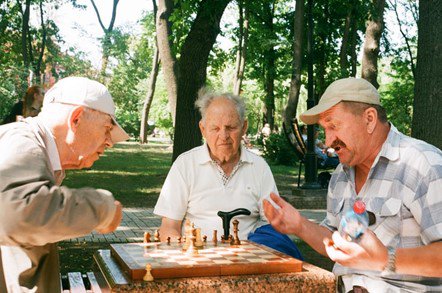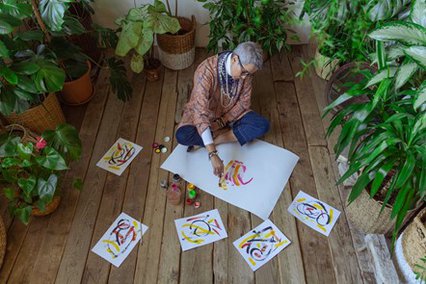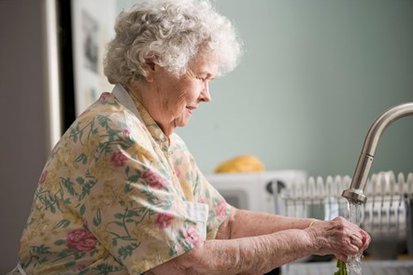Today, more than 2.5 million people across the UK are receiving their pension benefits.

While some retirees want to keep part-time work that doesn't interfere with their benefits or retirement plans, many others are unsure what to do with the extra time that has been foisted upon them.
While many old people fantasise about the day when they may retire from their 9-to-5 jobs and long commutes, they may be unsure how to fill their days once work is no longer their primary focus. Seniors sleep for less than 10 hours a day on average, which gives plenty of time for leisure activities once their daily tasks are accomplished.
The average senior has around seven hours of free time every day, half of which is spent watching television. Unfortunately, watching television is related to a sedentary lifestyle, which is bad for anyone's health.
Retirees can embrace new activities that are beneficial for both their physical and mental well-being to preserve or even improve their physical and mental health. We've put up a list of enjoyable retirement pastime ideas which are also beneficial to seniors.
What’s the Importance of Having a Hobby, Particularly after Retirement?
Seniors from all walks of life can benefit from having a pastime they love, regardless of where they reside or their financial situation. Seniors' cognitive function and physical health might be aided by a pastime that incorporates mobility or promotes mental agility. Of course, how much time a person should commit to their activity is largely subjective. After all, fishing all day in the scorching sun or during the cold months isn't always possible—or desirable. On the other hand, it's critical to devote a significant amount of time to a hobby—or maybe numerous hobbies—that may benefit both the body and the mind. Many activities have health advantages linked with them. The health benefits associated with many hobbies are undeniable. Gardening, for example, has health advantages such as providing vitamin D to the body and increasing serotonin levels for a more stable mood). It also demands exercise, such as bending, walking, and moderate lifting, to keep you in shape. Other health advantages linked to hobbies include:

- Stress reduction and stress management
- Challenges the brain (which can improve functions mental functions like memory)
- Supports the immune system
- May support mobility
- May support weight management
- May improve social connections (which can enhance mood)
Physical hobbies like ballroom dancing or yoga have a long list of health advantages, including lower blood pressure, better heart health, and a lower chance of depression and other mood disorders. Seniors should think about their health requirements and choose an activity — or a few activities — that will help them stay healthy in the areas where they need it most.
15 Hobbies That Offer Health Benefits for Seniors...
These are some of the most popular activities among seniors and retirees, and they rely on them to maintain their physical and mental well-being. Many of them need little or no financial outlay but provide a huge amount of enjoyment, social involvement, or other benefits that retirees value.

1. Walking Club
Senior walking groups may be found in many communities. Weight control, cardiovascular health, mood enhancement, and immune system performance are just a few of the emotional and physical advantages of walking. Trails for walkers, joggers, and cyclists may be found in many areas.
2. Join a virtual or in-person book club
When it comes to books, many seniors appreciate them. There are both physical and Internet book clubs established specifically for seniors or readers of certain genres, such as mysteries or literature. Book clubs provide social contact while also lowering stress and increasing a sense of belonging.
3. Learn a new language
Learning a new language has therapeutic cognitive advantages, such as preventing or delaying dementia and Alzheimer's disease. Memory, knowledge understanding and self-confidence can all benefit from this style of learning.

4. Knitting, crocheting, or sewing
Even though these activities aren't related to physical exercise, they can assist retirees to retain mental agility and reduce stress. Some seniors get money from their knitting pastime by selling their creations at local craft fairs or on Etsy.
5. Gardening
Gardening offers both physical and mental health benefits — and a bounty of produce and flowers. Not only does it support heart health and mood; it may even help reduce the risk for dementia, according to AARP.
6. Embrace technology
Seniors certainly can keep up with their tech-savvy grandkids if they want to. Retirees can download apps that support their other hobbies. For instance, download apps to listen to audiobooks while gardening, or post pictures of artwork on Instagram.

7. Paint
Painting is a great way to pass the time. It offers seniors improved stress reduction, enhanced dexterity, and promotes self-confidence. Seniors have many different styles to explore, including watercolour, oil, and acrylic painting. Taking an art class is another way to support this hobby and establish new social outlets.
8. Mentor a child or college student
Maintaining connections with the outer world is important for seniors because it can reduce feelings of loneliness or isolation when they live by themselves. While seniors can mentor online, they can also attend area community centres that welcome retired volunteers and mentors.
9. Write a memoir
Retirees are a fount of knowledge and experience. That knowledge and those experiences can be invaluable to family members, but they might also be worth sharing with others. Many retirees spend time writing memoirs for different purposes—to record their life story or share their professional knowledge with people in their former work field. Writing promotes mental agility and stress reduction.
10. Animal care
Many retirees combine their love for pets with volunteering at area animal shelters. Others opt to pet sit for some supplemental income. Animals can keep seniors from feeling lonely and show them how needed they truly are when it comes to the care of animals and pets.

11. Chess
Chess has traditionally been associated with the elderly and retirees, but nowadays you don't need to go to the park or a local coffee shop to play. Seniors can enhance their chess skills by joining online chess groups. Chess is an excellent technique to improve mental agility and may possibly assist to lower dementia risk.
12. Photography
Seniors who love to be outdoors might want to improve their photography skills. Photography pairs well with many hobbies, like bird watching, artmaking, and blogging. Some retirees become quite serious about their photography and even rely on it for extra income. Like other forms of art, photography can improve mood and help reduce stress.
13. Restore or build furniture
While carpentry and furniture repair isn't as physically demanding as dance, they may keep seniors engaged and moving. Many retirees anticipate the day when they will be able to spend the entire day at their woodworking bench or working on hobbies such as reupholstering old furniture. These types of hobbies can help seniors stay creative as well as physically and psychologically engaged.
14. Crossword puzzles and other games
Like chess, crossword puzzles or jigsaw puzzles can help retirees keep their minds active. Games that involve thinking are helpful for warding off dementia and supporting memory and overall cognitive health.

15. Cooking or baking
Both men and women retirees anticipate the days when they can spend the entire day in the kitchen honing heritage recipes or cooking for family and friends. Cooking might help seniors relax, but standing, bending, and stirring can also help them burn calories and stay active.
Everyone has to assess their own physical limitations and needs when choosing these or other hobbies. The main thing is that retirees be deliberate about allocating time to their hobbies and sticking with them to enjoy their benefits. It’s a priority for all seniors to maintain or improve their health and participating in enjoyable pastimes such as these can certainly help. Other hobbies to keep in mind include fishing, scrapbooking, volunteering, genealogy research, tennis, bicycling, golf, geocaching, swimming, building models, origami, jewellery making, and taking online courses on a topic of their choice.
Are you looking for care for a loved one? Please get in touch with us today!
Call us on 01865 680331
Send message

